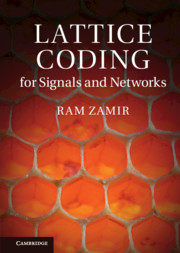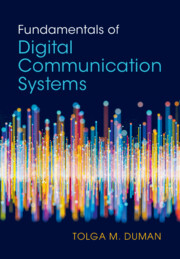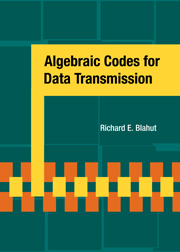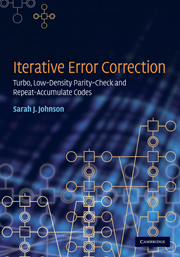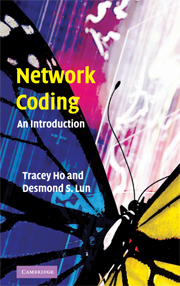Lattice Coding for Signals and Networks
Unifying information theory and digital communication through the language of lattice codes, this book provides a detailed overview for students, researchers and industry practitioners. It covers classical work by leading researchers in the field of lattice codes and complementary work on dithered quantization and infinite constellations, and then introduces the more recent results on 'algebraic binning' for side-information problems, and linear/lattice codes for networks. It shows how high dimensional lattice codes can close the gap to the optimal information theoretic solution, including the characterisation of error exponents. The solutions presented are based on lattice codes, and are therefore close to practical implementations, with many advanced setups and techniques, such as shaping, entropy-coding, side-information and multi-terminal systems. Moreover, some of the network setups shown demonstrate how lattice codes are potentially more efficient than traditional random-coding solutions, for instance when generalising the framework to Gaussian networks.
- Connects information theory and coded-modulation, providing a unique viewpoint on the two subjects
- Shows the duality between communication and compression, enabling readers to switch easily between the two disciplines
- Develops non-asymptotic analytical tools, enabling readers to assess the performance of a digital communication system without requiring simulations
- Makes advanced information theory practical by using classical algorithms to solve advanced multi-terminal problems
Product details
September 2014Hardback
9780521766982
454 pages
254 × 180 × 24 mm
1.03kg
138 b/w illus. 11 tables 110 exercises
Available
Table of Contents
- 1. Introduction
- 2. Lattices
- 3. Figures of merit
- 4. Dithering and estimation
- 5. Entropy-coded quantization
- 6. Infinite constellation for modulation
- 7. Asymptotic goodness
- 8. Nested lattices
- 9. Lattice shaping
- 10. Side-information problems
- 11. Modulo-lattice modulation with Yuval Kochman
- 12. Gaussian networks with Bobak Nazer
- 13. Error exponents.

